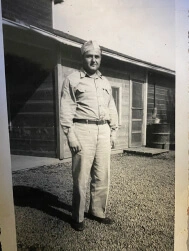VA Disability Appeal Lawyer
You served your country, and now you’re fighting for the VA disability benefits you deserve. But the claims process is full of red tape and dead ends. Too many veterans get the runaround, their claims denied or short-changed. It’s time to level the playing field.
At ProVet Legal, we’re here to help. Our attorneys know the VA system inside and out. We’ve gone to bat for countless veterans, and we’ll do the same for you. No more lost paperwork, no more endless waiting, no more lowball ratings. When VA messes up, we’re there to hold them accountable and right the ship.
We’ll fight for every last benefit you’ve earned with the skill that only comes from years in the trenches. You have an ally now. Don’t go it alone. Contact us for a consultation and learn more about how we can help.
The New VA Appeals System
In 2019, the VA overhauled its appeals system with the implementation of the Appeals Modernization Act (AMA). This was designed to streamline the process and give veterans more options.
Here’s what you need to know:
The Three Lanes of Appeal (Decision Review)
Under the AMA, veterans now have three options when disagreeing with a VA decision:
- Supplemental Claim — This option allows you to submit new, relevant evidence that wasn’t considered in the original decision. This could include additional medical records or new medical opinions. The VA is obligated to assist you in gathering evidence for this type of claim.
- Higher-Level Review — If you believe your claim was denied due to an error, this is the appropriate choice. A senior VA reviewer will re-examine your existing evidence. No new evidence can be submitted in this process; but we can submit written argument and schedule a conference to talk to the Decision Review Officer to help them identify and rectify the mistakes in the original decision.
- Board Appeal — This option brings your case before the Board of Veterans’ Appeals (BVA). There are three sub-options within this category:
- Direct Review: The Board examines your case based on the existing evidence.
- Evidence Submission: You have 90 days to submit new evidence for consideration.
- Hearing: You can request a hearing with a Veterans Law Judge and submit new evidence.
Each of these lanes has its own timeline and strategic considerations. For instance, Supplemental Claims and Higher-Level Reviews aim for decisions within 125 days, while Board Appeals can take several years, and requesting a hearing at the Board could add years on top of the already long wait at the Board.

Legacy Appeals (Before Feb. 19, 2019)
For VA claims that were initiated before February 19, 2019, if you did formally opt into the new system and you have continuously pursued your claim (you did not miss any appeal deadlines), your claim will remain in the legacy appeals process, and follow a different set of appeals procedures and timelines. VA is working hard to complete all claims in the Legacy system, so there may be benefits at certain stages to remaining in this system.
If you’re in the middle of appealing a decision from before this date, you’ll continue with the legacy process, but there are two points where you can opt into one of the three new decision review options.
- Filing a Notice of Disagreement (NOD) — For decisions before February 19, 2019, you had to file a Notice of Disagreement (VA Form 21-0958) within one year of the date on your claim decision letter. This form is no longer in use for new disagreements.
- Statement of the Case (SOC) — After you file your NOD, the VA reviews all the evidence related to your appeal, including any new evidence you submitted. If the VA determines there wasn’t enough evidence to fully grant your appeal, they send you their findings in a Statement of the Case.
- Responding to the Statement of the Case —For SOCs dated on or after February 19, 2019, you have the option to continue the legacy process or opt into one of the three new decision review options.
- Board of Veterans’ Appeals Review — The VA finishes the review and sends your case to the Board of Veterans’ Appeals, where a Veterans Law Judge will review your appeal in the order it was received.
- Hearings and the Board’s Decision — You have the option to request a hearing with a Veterans Law Judge. The Board will then make a decision on each issue in your appeal, either allowing, remanding, or denying your claim.
- Supplemental Statement of the Case (SSOC) — If the Board remands the claim, it will be sent back to the Regional Office for additional development. The Regional Office will then issue a decision, and for any claims that are not granted, the VA may need to prepare a Supplemental Statement of the Case before sending your case back to the Board of Veterans’ Appeals. For SSOCs dated on or after February 19, 2019, you can continue the legacy process or opt into a new decision review option.
The legacy appeals process can be lengthy, with decisions from the Board of Veterans’ Appeals taking 5-7 years in some cases. Though currently, if you have a legacy case pending at the Board, the Board is required to prioritize it over the AMA cases on the docket.
If you have the option to opt into one of the new decision review processes, we recommend speaking with a VA disability appeal lawyer to determine the best path forward for your case.
Appealing to the United States Court of Appeals for Veterans Claims (CAVC)
If you disagree with the Board of Veterans’ Appeals (BVA) decision on your VA disability claim, you have the right to appeal to the United States Court of Appeals for Veterans Claims (CAVC).
The CAVC is an independent federal court that has exclusive jurisdiction to review decisions made by the BVA.
Steps to Appeal a BVA Decision to the CAVC
- Obtain a Final BVA Decision: You must have a final decision from the BVA before you can appeal to the CAVC. If you’re unsure about the status of your claim, contact the BVA status line at 800-827-1000.
- File a Notice of Appeal (NOA): You must file a written NOA with the CAVC within 120 days of the date the BVA mailed its decision to your last known address. The NOA must include your current name, address, telephone number, email address (if available), VA claims file number, and the date of the BVA decision being appealed.
- Pay the Filing Fee or Submit a Declaration of Financial Hardship: After filing your NOA, you’ll be assigned a CAVC case number. Within 14 days of sending your NOA, you must either pay a $50 nonrefundable filing fee or submit a Declaration of Financial Hardship. You can pay the filing fee electronically through Pay.gov or by mailing a check or money order payable to “U.S. Court of Appeals for Veterans Claims.” Do not submit both the filing fee and the Declaration of Financial Hardship.
Taking your case to the Court of Appeals for Veterans Claims (CAVC) after a Board of Veterans’ Appeals (BVA) decision isn’t a walk in the park. There are strict rules and timelines to follow, and one misstep could cost you your chance to appeal.
If you’re feeling overwhelmed, don’t worry – that’s normal. Many veterans find it helpful to team up with a VA disability appeal lawyer who knows the ropes and can fight for you in court. We can help you navigate the process and make sure your voice is heard.
What to Do When VA Denies Your Disability Claim
A denial is not the end of the road for your disability claim. It’s often just the beginning.
If you received a denial letter, you should:
- Read the decision letter carefully. It should explain why your claim was denied. Understanding this is crucial for your next move.
- Gather new evidence. This might include detailed statements from fellow service members, additional medical opinions, or more comprehensive mental health evaluations.
- Choose your appeal lane.
- File your appeal within one year of the decision date. Missing this deadline can complicate your case.
- Contact a VA disability appeals lawyer. They can help you understand your options and guide you through the process.
While it’s possible to handle your VA disability appeal alone, many vets opt for legal help – and for good reason. VA law is a maze of rules and procedures. A good lawyer knows which path to take for your specific case and what evidence will make the most impact in your case.
They’ll keep you on track with deadlines, represent you effectively at hearings, and make sure you’re not shortchanged on your disability rating. Bottom line: having a VA disability appeals lawyer in your corner may improve your chances of getting the benefits you’ve earned without the stress of going it alone.
Common Pitfalls in VA Appeals
Over the years, we’ve seen veterans stumble on some common obstacles. Here are a few to watch out for:
- Insufficient Medical Evidence: The VA needs to see evidence of a current diagnosis and a clear link between your condition and your service. Vague medical records won’t cut it.
- Missing Deadlines: The appeals process is time-sensitive. Missing a deadline can set you back significantly.
- Choosing the Wrong Appeal Option: Each lane has its strengths. Picking the wrong one can delay your claim unnecessarily.
- Giving Up After a Denial: Many veterans don’t realize that an initial denial is often just part of the process. Don’t throw in the towel too soon.
The VA appeals process is a marathon, not a sprint. We’ve seen cases drag on for years. But here’s the good news – persistence often pays off. Don’t let these hurdles discourage you. With the right approach and support from our legal team, you can navigate these challenges and fight for the benefits you deserve.
Ready to Take the Next Step?
If you’re feeling overwhelmed by the VA appeals process, you’re not alone. At ProVet Legal, we’ve guided countless veterans through this journey. We understand the frustration, the delays, and the importance of these benefits to you and your family.
Why not reach out for a free consultation? We can review your case, explain your options, and help you chart a course forward. You fought for our country. Now, let us fight for you.
Contact ProVet Legal today. Let’s work together to secure the benefits you’ve earned and deserve.




